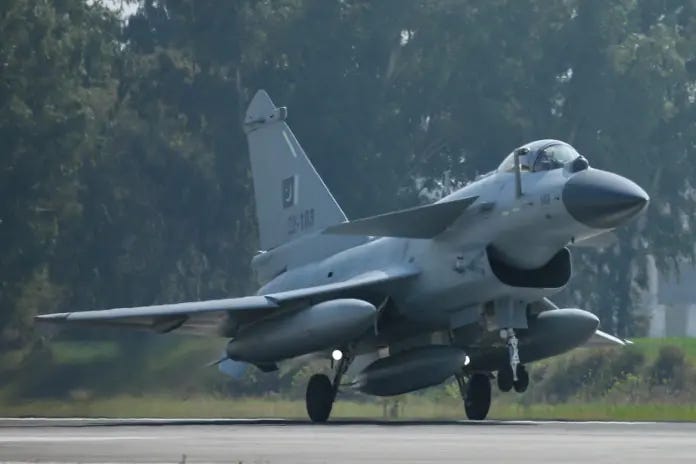India’s Operation Sindoor has marked a significant strategic shift, with the Indian Air Force (IAF) reportedly striking high-value terror and military targets deep inside Pakistani cities, including Karachi and Islamabad. In what could be described as one of India’s most daring aerial operations in recent times, the airstrikes have sent strong signals across geopolitical lines, reigniting debates on national security and cross-border terrorism
India’s Strategic Counteroffensive: Why Operation Sindoor Matters
The IAF has revealed that precision strikes were carried out on terror infrastructure and strategic military zones within Pakistan’s heartland. This unprecedented development follows months of heightened tensions along the Line of Control (LoC) and credible intelligence inputs suggesting terror launchpads were being reactivated.
According to defense analysts, the targets were located in Karachi’s Gulshan-e-Iqbal region and a secret compound in Islamabad’s G-12 sector, believed to be used by high-ranking terror commanders. These locations were not just symbolic; they represent the nerve centers of Pakistan-backed militant networks operating in Kashmir and beyond.

Political Ripples and Global Reactions
As news of the strikes spread, political leaders in India hailed the operation as a bold counterterror move, asserting that India would no longer tolerate provocations from across the border. Defense Minister Rajnath Singh tweeted that “this is a new India that retaliates decisively.”
On the international front, global powers are treading cautiously. The United States and European Union have urged both nations to exercise restraint, though intelligence-sharing between India and Western agencies appears to have played a role in identifying the targets. Meanwhile, Pakistan’s Foreign Office has denied the allegations, claiming no airspace violations occurred—a claim countered by radar footage shared by Indian defense sources.

Pakistan’s Denial vs India’s Proof: The Propaganda War
Pakistan’s official statement downplaying the strikes has been met with skepticism, especially after satellite imagery and drone reconnaissance videos surfaced, allegedly showing impact craters and damaged buildings in the targeted zones.
India, in its official communique, presented Before-and-After satellite visuals of the Karachi and Islamabad sites, adding credibility to their claims. The strategic significance of this move also lies in India’s messaging: cross-border terrorism will be answered not with words, but with action.
Image Alt: Satellite comparison of Karachi site before and after Operation Sindoor strike
Conclusion: What Operation Sindoor Means for India’s National Security Posture
Operation Sindoor underscores a paradigm shift in India’s defense strategy—from defensive deterrence to proactive countermeasures. The IAF’s successful strikes deep into enemy territory reflect not only advanced military capabilities but also a firm political will to safeguard national interests.
As this story develops, eyes remain on Pakistan’s next move and the diplomatic chess game that will follow. Regardless, India’s message is loud and clear: the country will protect its sovereignty by all means necessary.
👉 Stay tuned with The Indian Chronicles for more verified updates.
💬 Have thoughts on Operation Sindoor? Drop your opinions in the comment section below!
🔁 Share this article if you believe in a strong, secure India.










